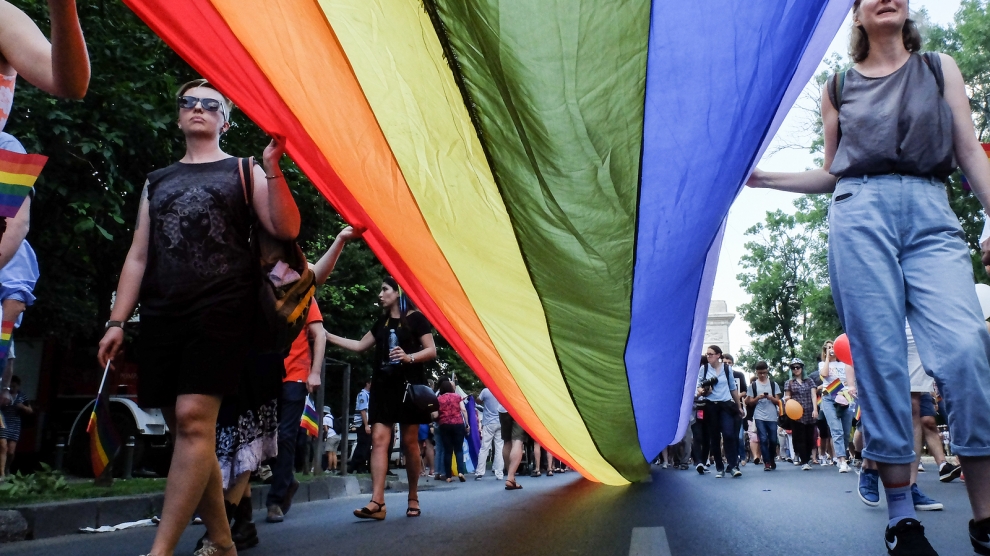Lithuania’s Constitutional Court has ruled that foreign, same-sex spouses must be granted residence permits by the country’s migration department, despite same-sex unions not being recognised in the Baltic state. The court ruled that denying the right of family reunion to same-sex couples is discriminatory and undermines human dignity.
Vladimir Simonko, head of the Lithuanian Gay League, told Agence France-Presse that the decision is “a progressive ruling that sends an important message to our LGBT community and politicians. I hope it will lead towards a more positive attitude towards gay families.”
The Catholic church in Lithuania is less pleased with the ruling.
“The court maintains that marriage is gender-based, while family is gender-neutral. Thus, the court’s ruling sets these two concepts, which we view as being essentially interrelated, apart,” the Lithuanian Bishops’ Conference said in a statement.
According to the church, the court’s ruling will allow new legal category of same-sex family or family relationships into Lithuania’s legal system, bypassing the country’s parliament, the Seimas.
“The authors of the constitution would have hardly agreed to what the constitutional court states in its ruling, which is that the constitutional concept of family is gender-neutral,” added the bishops, stating that the court’s interpretation of the constitutional concept of family goes against the teachings of the church.
In June 2018, ruling on a case involving a Romanian lawyer and his American husband, the European Court of Human Rights ruled that EU members must recognise the immigration rights of same-sex spouses, regardless whether same-sex marriage is legal in the respective EU country. Shortly afterwards, a court in Sofia, Bulgaria, ruled that a married French-Australian same-sex couple should be allowed to live in Bulgaria together.
Since then, not all of emerging Europe’s EU member states have respected the ruling, however.
Just last week, a court in Poland rejected the application of a same-sex couple to register a marriage which took place in Portugal in 2017.
“Standing in front of the court was stressful for us, just like watching Titanic for a second time. You know the ending, but you are always nervous hoping that some miracle will happen,” said Jakub Kwieciński, who, together with his husband, is fighting to have their marriage recognised. “It didn’t happen, but the good news is that the court shared our opinion that same-sex marriages are not against the Polish constitution. That’s very important for our fight.”
“What was surprising for us was that when we listened to the judges it seemed that they really wanted to recognise our marriage but they couldn’t, continued Mr Kwieciński. “We feel disappointed but it doesn’t change the fact that we still feel married. As the judge said at the end – efforts like ours will some day bring about change. We have to keep trying. It’s not over!”






[…] Source link Google News […]